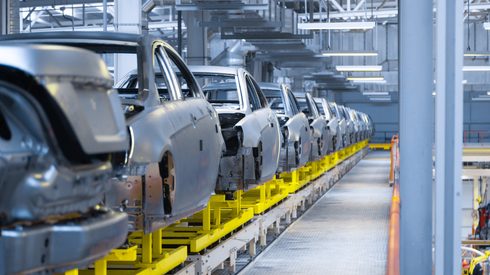American Iron and Steel Institute president and chief executive officer Kevin Dempsey said in the Wednesday November 6 statement that steel took center-stage during the election — and it should remain in the limelight throughout President Trump’s second term.
“Steel has been front and center during the presidential campaign and we are confident the concerns of our industry and its workers will receive priority attention by the incoming Trump administration,” he said.
Key priorities include trade enforcement and “preservation of the Section 232 steel tariffs that President Trump instituted in his first term.”
Also high on the agenda are tax reforms, a mandate for US-made steel in infrastructure projects, and “ensuring that government regulations do not adversely impact industrial competitiveness.”
“We are looking forward to working closely with the president-elect and his team to see these goals become a reality,” Dempsey said, adding that he was pleased that the majority of the Congressional Steel Caucus in the US House of Representatives was also re-elected.
AISI’s statement follows a strong showing of support from the US steel sector, which benefited heavily from the president-elect’s first term due to his protectionist measures.
In 2018, just over a year into President Trump’s first term and the year in which he enacted the blanket 25% tariff on steel and 10% on aluminium, Fastmarkets’ hot-rolled coil index, fob mill US Midwest rose to a yearly average of $41.37 per hundredweight ($827.40 per short ton) from a yearly average of $31 per cwt in 2017.
One steel producer source said that most end-users were “pretty agnostic” to the winner of the 2024 election.
“The most important thing in the eyes of the steel market, and all markets for that matter, is that the election is over without weeks and months of legal wrangling,” the producer said. “Now we can get to work knowing what lies ahead.”
One steel buyer said that President Trump is likely to hit China hard with tariffs in his second-term, as promised. Other trading partners – and some domestic industries – will be collateral damage.
“Inflation and interest rates will be higher as the result of the tit-for-tat trade wars,” the buyer said. “Global trades will negatively be impacted. Automotive will likely suffer even more as affordable prices become a big factor. Ag and equipment manufacturers may also suffer as China shifts grain purchases to Ukraine, Brazil, and Argentina. Like him or hate him, he will deliver a roller coaster ride for the next four years with [Tesla chief executive] Elon [Musk] and [politician] Robert Kennedy Jr. in his cabinet.”
Musk’s name came up again in reference to black mass, the result of electric vehicle battery recycling.
A black mass source said that markets would likely remain static till January, when the president-elect takes office. After, they “expect less grants and funds” than they received from the former administration, but speculated that Musk might prod then-President Trump to aid the EV sector during his second, non-consecutive term.
Trade tariffs a ‘stick’ to achieve policy goals
Other steel market participants said that Trump would likely use tariffs as “a stick” to accomplish his policy goals.
“I think Trump uses tariffs as bargaining chips, that is his stick, to get what he wants from the foreign countries,” a southern steel distributor said.
“There are too many moving parts in the automotive trade between US and Mexico to say whether a Trump presidency will be good or bad for the auto industry overall,” the distributor added.
A trader said that Brazil, Mexico and maybe even Canada might be in Trump’s tariff crosshairs.
“I think there will a lot more duties and taxes,” the trader said. “I think Trump may impose duties on Mexico and Brazil, maybe even Canada.”
The trader stressed that the US-Mexico trade is “complex.”
“Nucor sells a lot of galvanized steel into the Mexican auto parts making plants, SDI’s Sinton mill as well sells to Northern Mexico – so what will happen if Trump’s tariffs and policies disrupt the flow?” the trader said.
“US also buys a lot of agricultural products from Mexico – this is Trump’s strategy; he will first impose tariffs and then get the country to do what he wants,” the trader told Fastmarkets.
Discover how the 2024 US election is impacting and could impact US and global commodity markets with Fastmarkets. Head to our US election hub.






